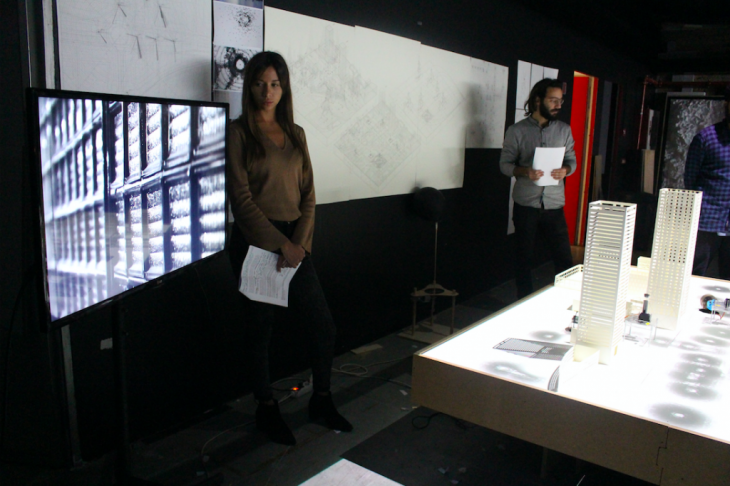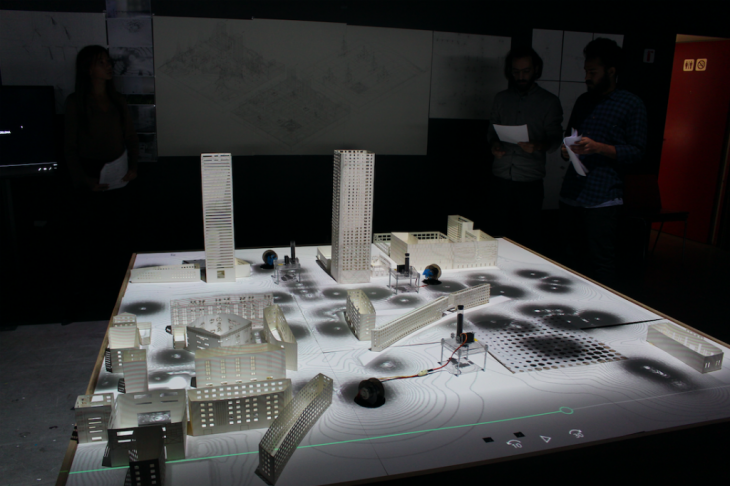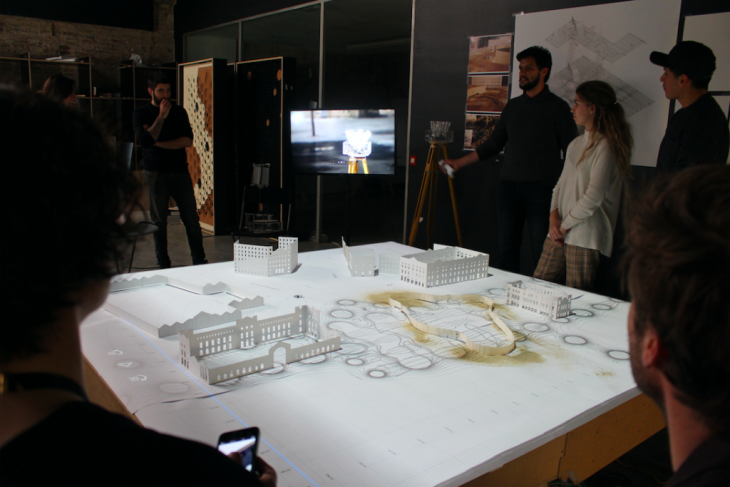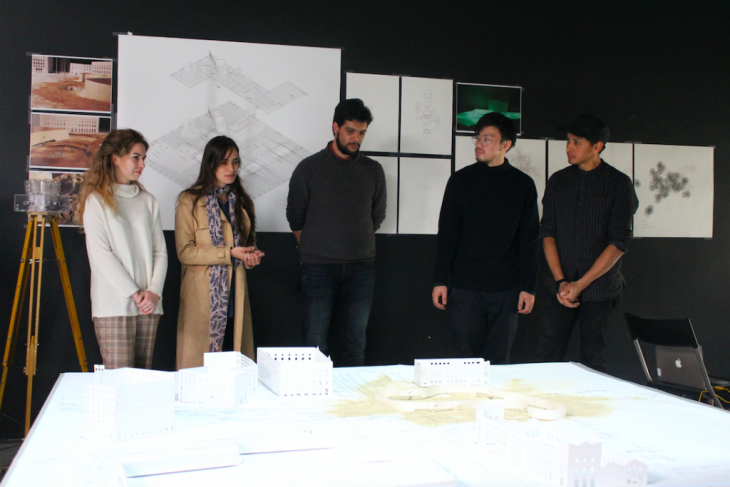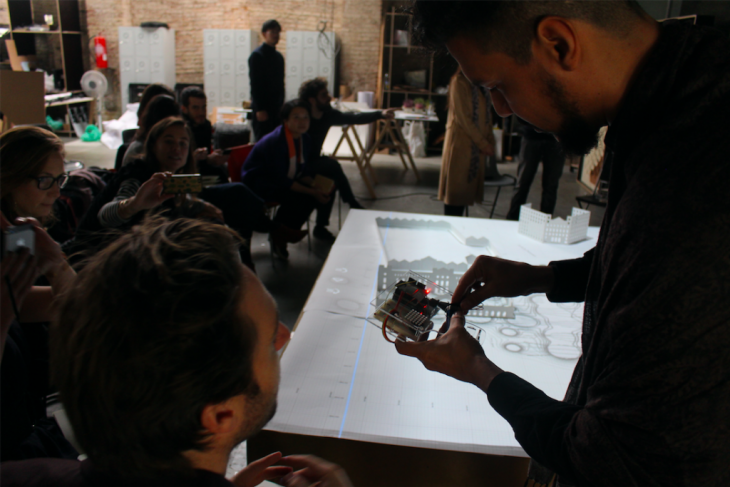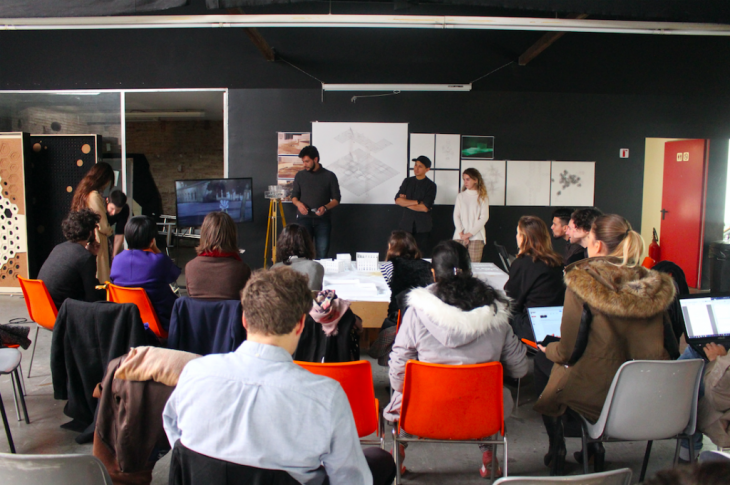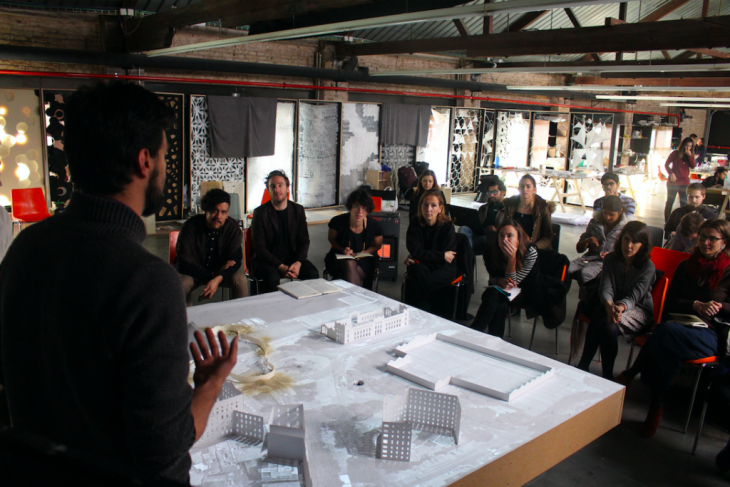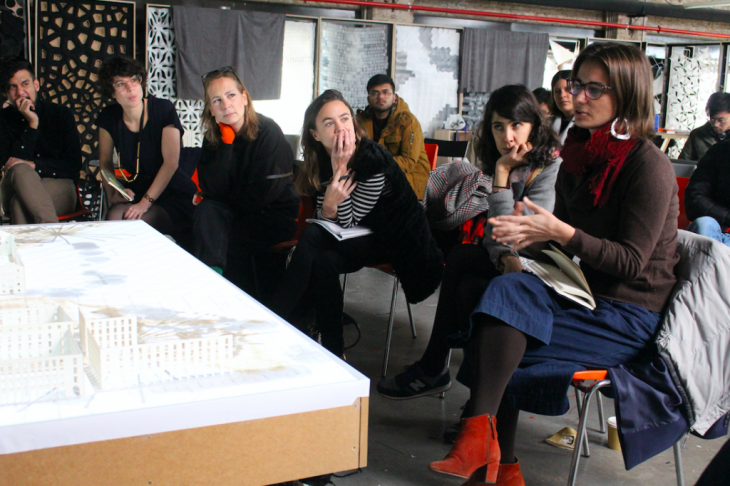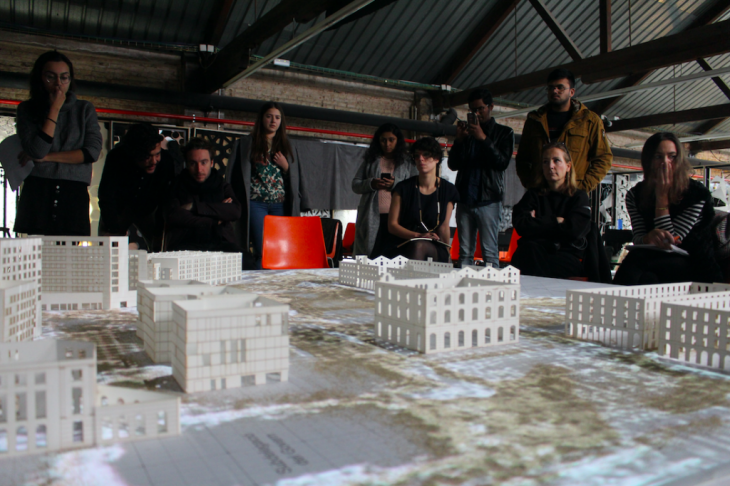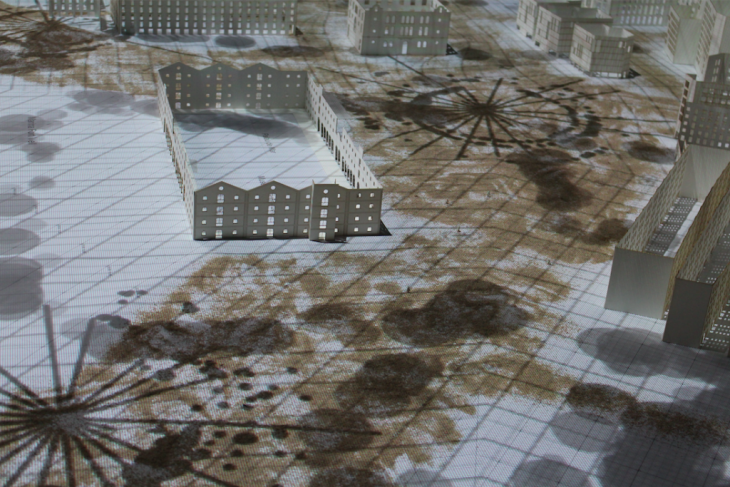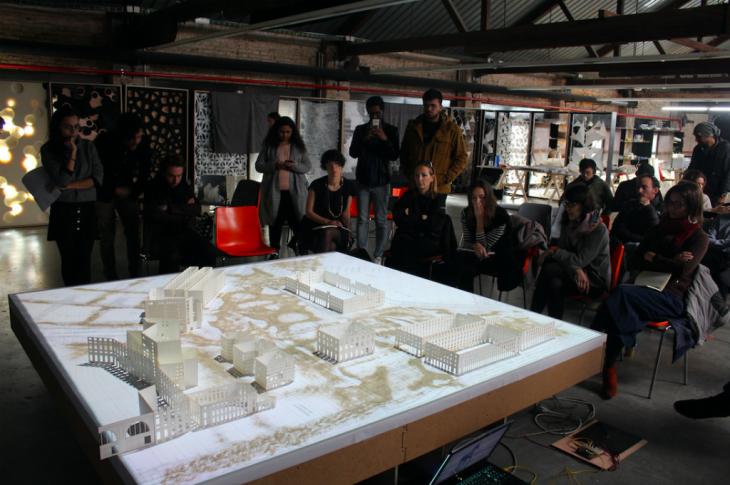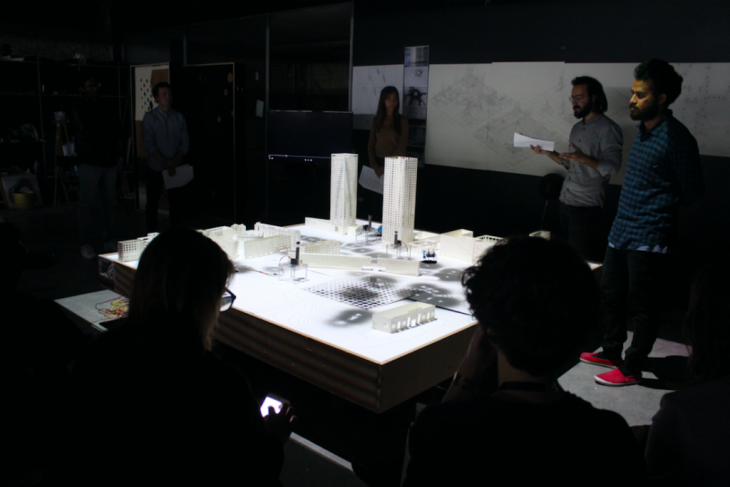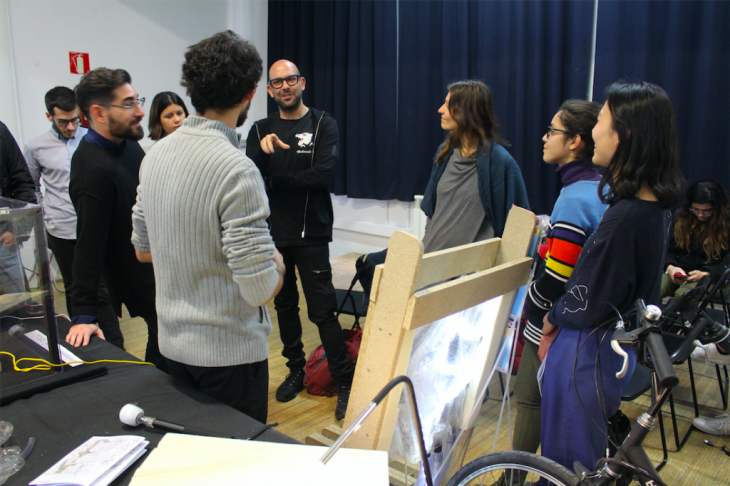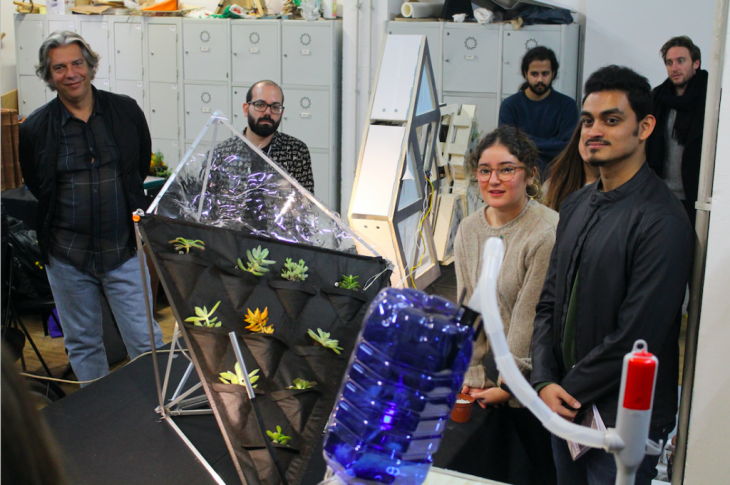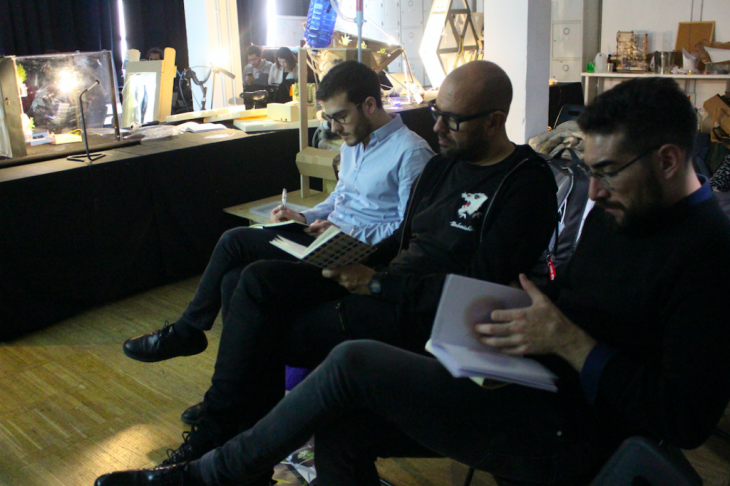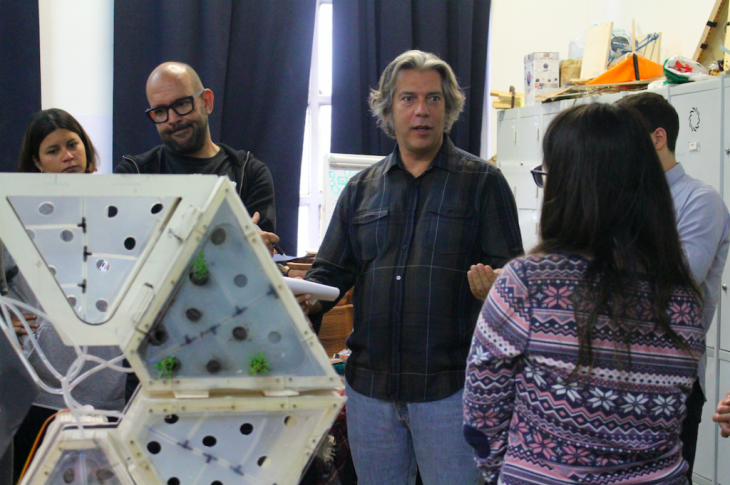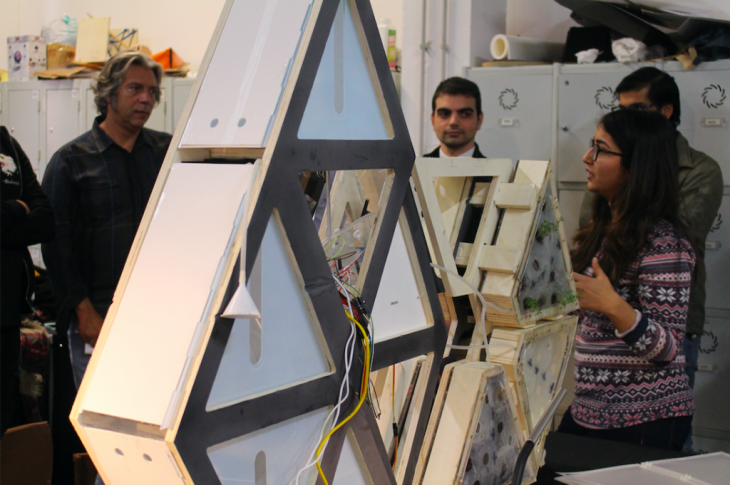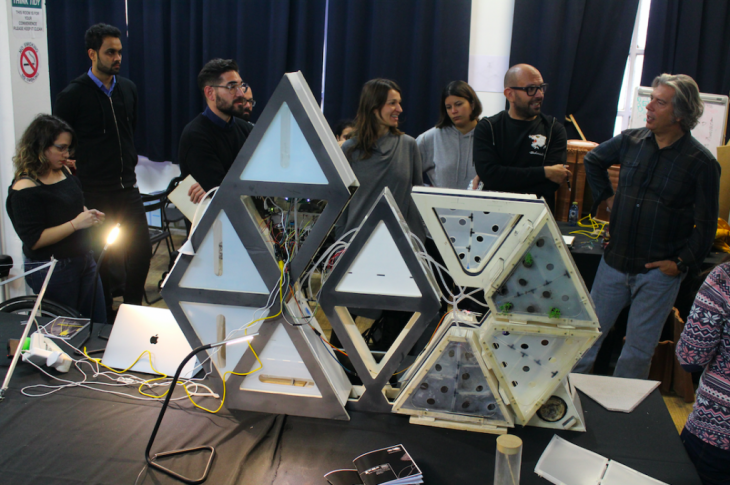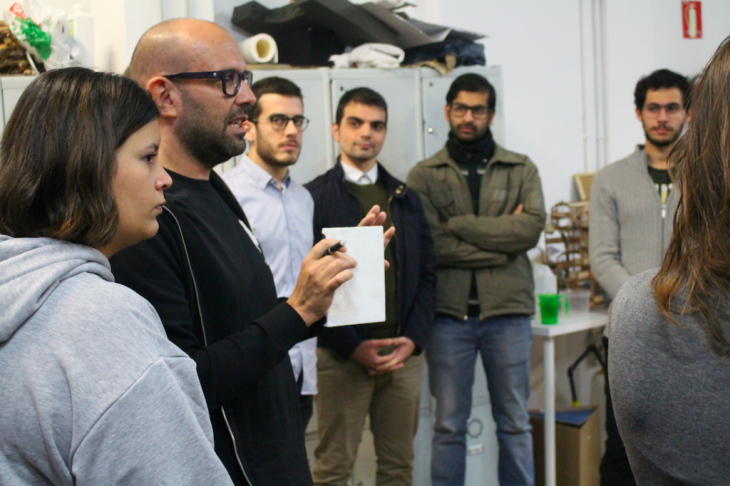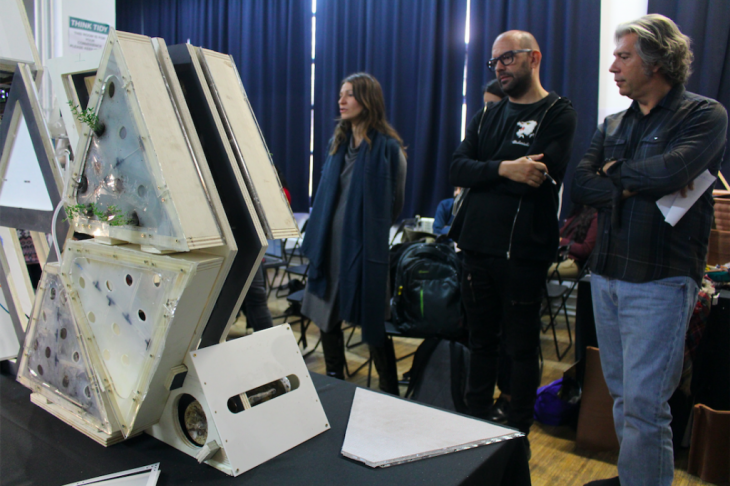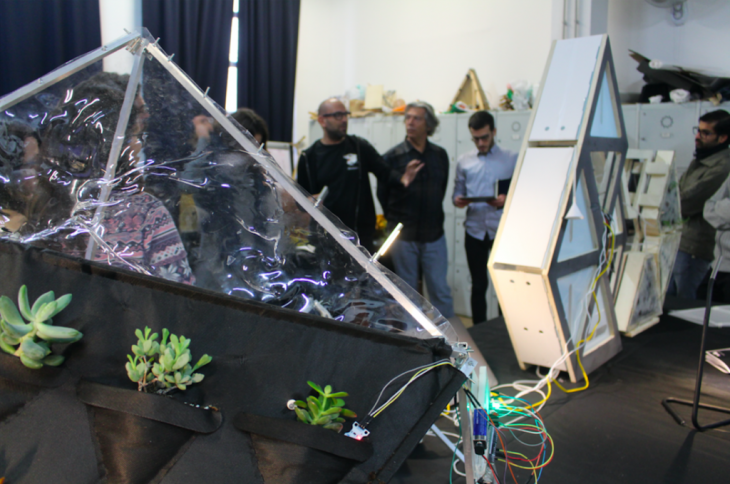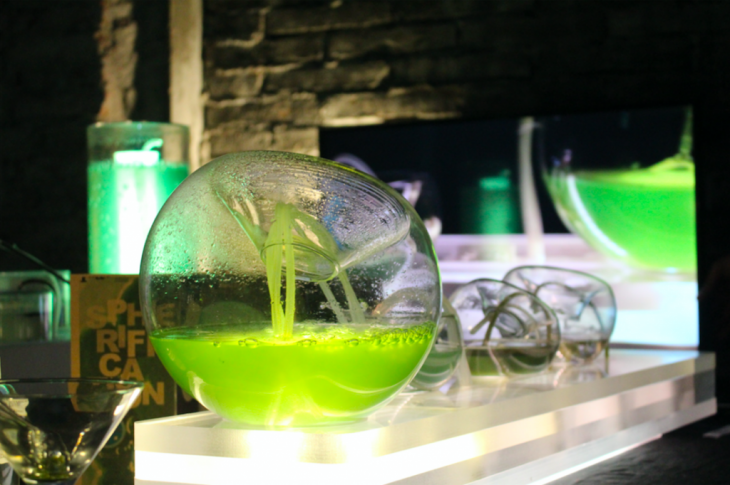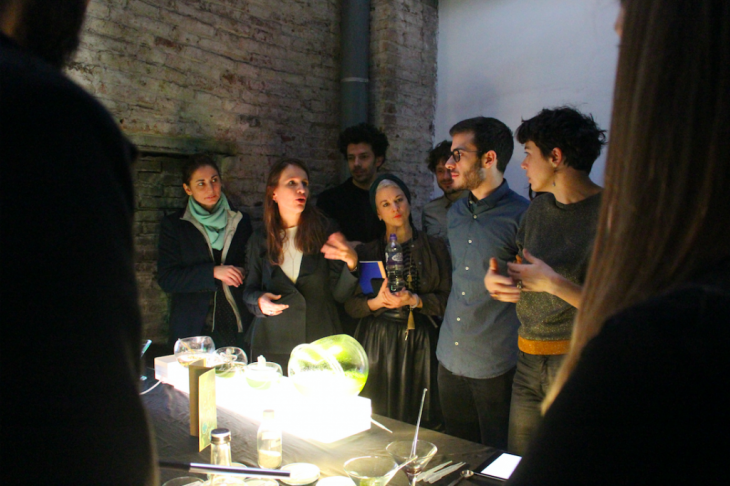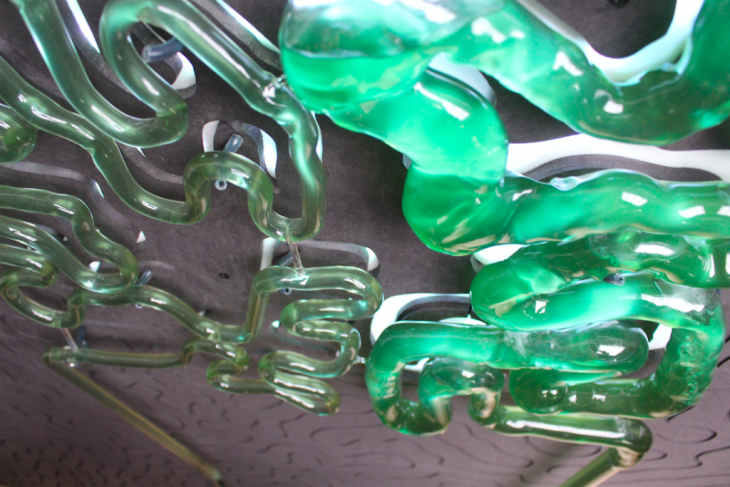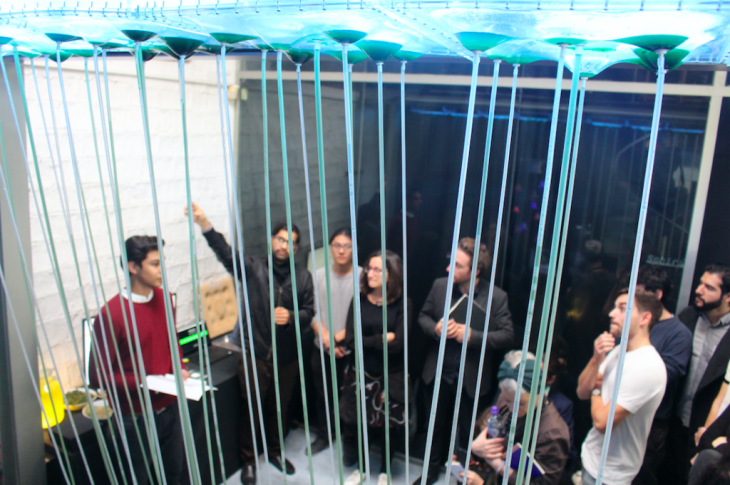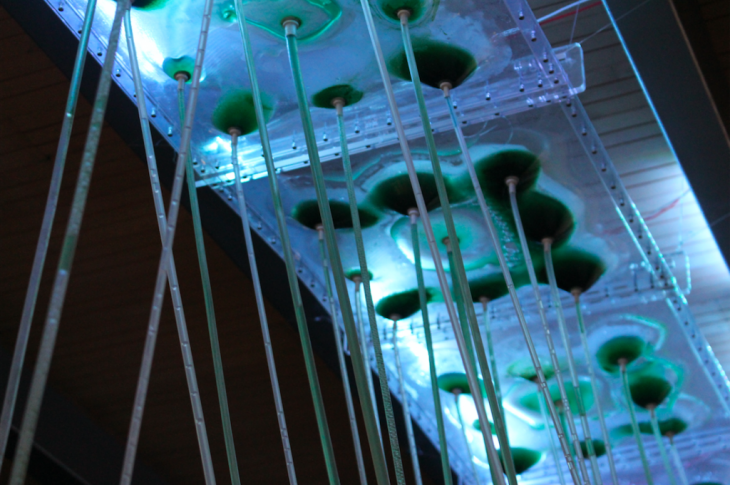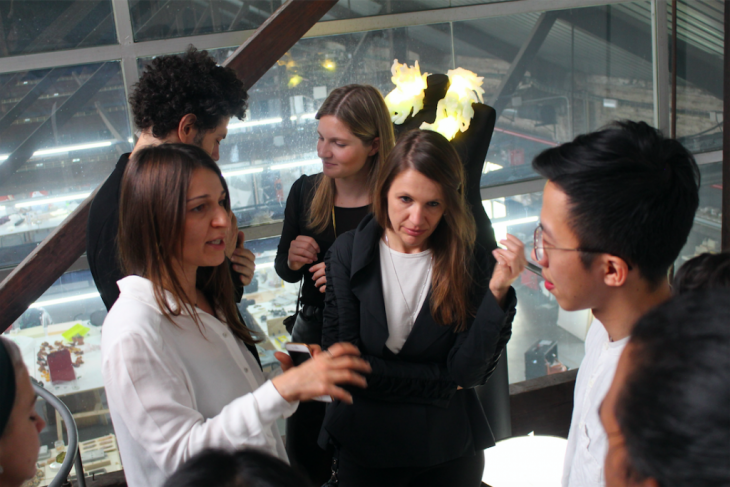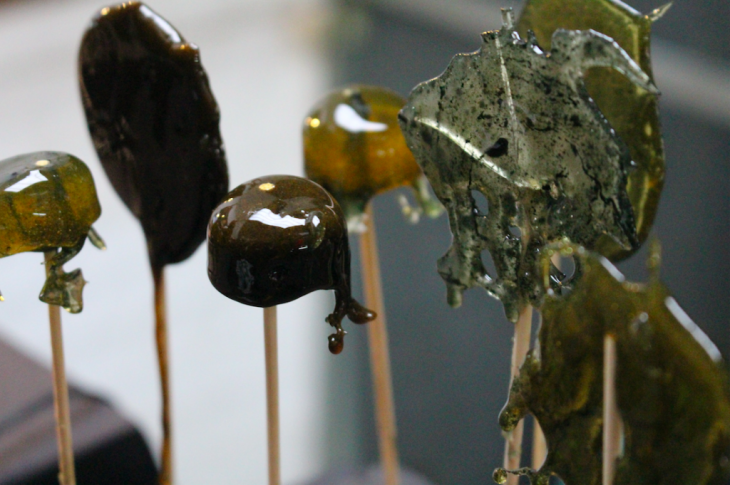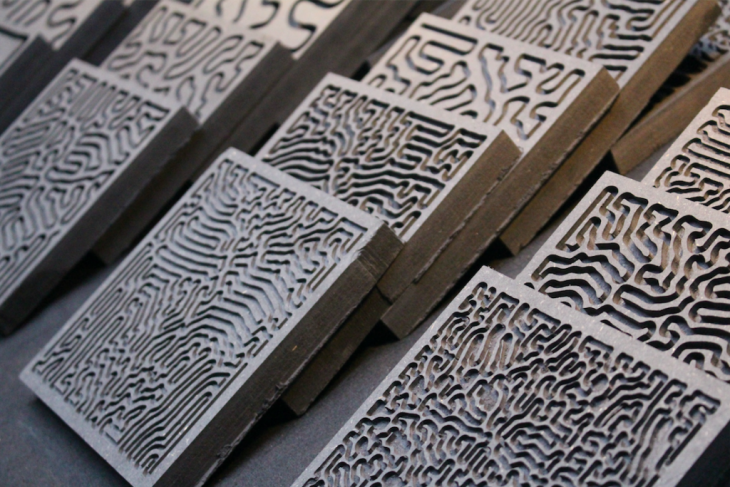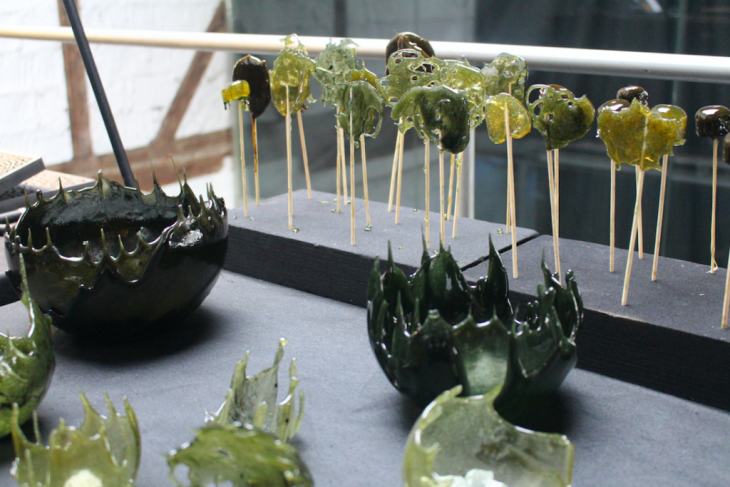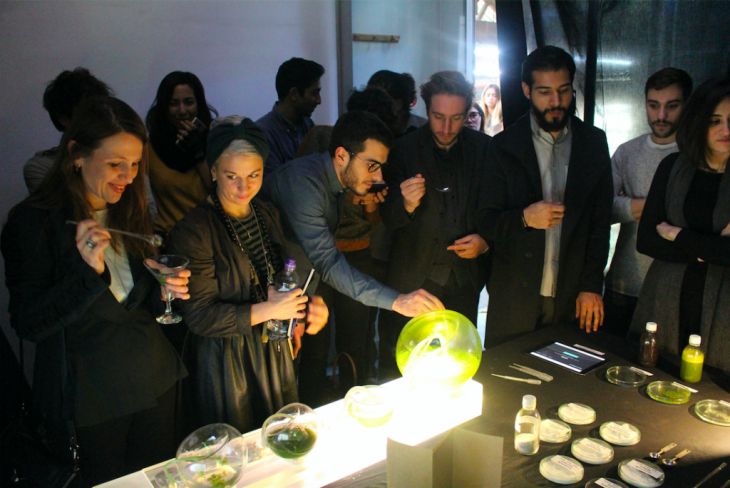Active Public Space: MAA Students' Visions for the Age of the Anthropocene
Last week the students of the first year of the Master in Advanced Architecture went through the Final Presentations of the three Introductory Studios of the current Academic Year.
Climate change, car-less cities and food production in the Age of the Anthropocene are the future scenarios being explored by the students, challenged to propose new visions to transform the public space of our cities in an Active Public Space.
The studio Machinic Protocols, led by Senior Faculty Edouard Cabay, Faculty Rodrigo Aguirre and Guest Faculty Stuart Maggs, assisted by Mehmet Berk Bostanci, continued this year its exploration on the car-less city by articulating time-based urban and architectural solutions for the Barcelona’s public space.
The studio has concluded its investigation with a series of narrative short films, shot within a performative model that presents the projects as an urban fiction, featuring the changes in the urban public space over the period of one or several decades.
Among the international jurors who reviewed the students’ proposals: Teresa Cheng Ecole polytechnique fédérale de Lausanne (EPFL), Emmanuelle Chiappone-Piriou – TU Wien, Mar Santamaria Varas – 300,000km/s, Olga Subirós – Creative Director and Architect and the photographer Bénédicte Vanderreydt.
The studio My Metabolic Garden, led by the Senior Faculty Javier Peña and the Faculty Oriol Carrasco, with the assistance of Catalina Puello Acosta, challenged MAA students about developing skills, knowledge and comprehension for being able to generate a new spatial device.
Climate change and global warming were the main drivers to start working on existing gardens and empty lots, with the aim of transforming them into devices of climatic intermediation.
Among the international jurors who reviewed the students’ proposals: Manuel Collado – Mi5VR – Virtual and Real Architecture and Solimán López.
The studio Morphogenesis of an Urban Photo-bio-reactor led by the Senior Faculty Claudia Pasquero and Carmelo Zappulla, with the assistance of Sebastian Amorelli, has been a speculation on the so called “Post Kitchen Gastronomy”.
Over the last three months, MAA students has been working at the intersection of biology, computation and design, while investigating the production and consumption of food in the Anthropocene Age and mapping new spaces of cultivation in the city of Barcelona.
Among the international jurors who reviewed the students’ proposals: Rachel Wingfield , Enric Ruiz Geli, Edouard Cabay, Nacho De Juan-Creix Umbert and Maria Kuptsova.
